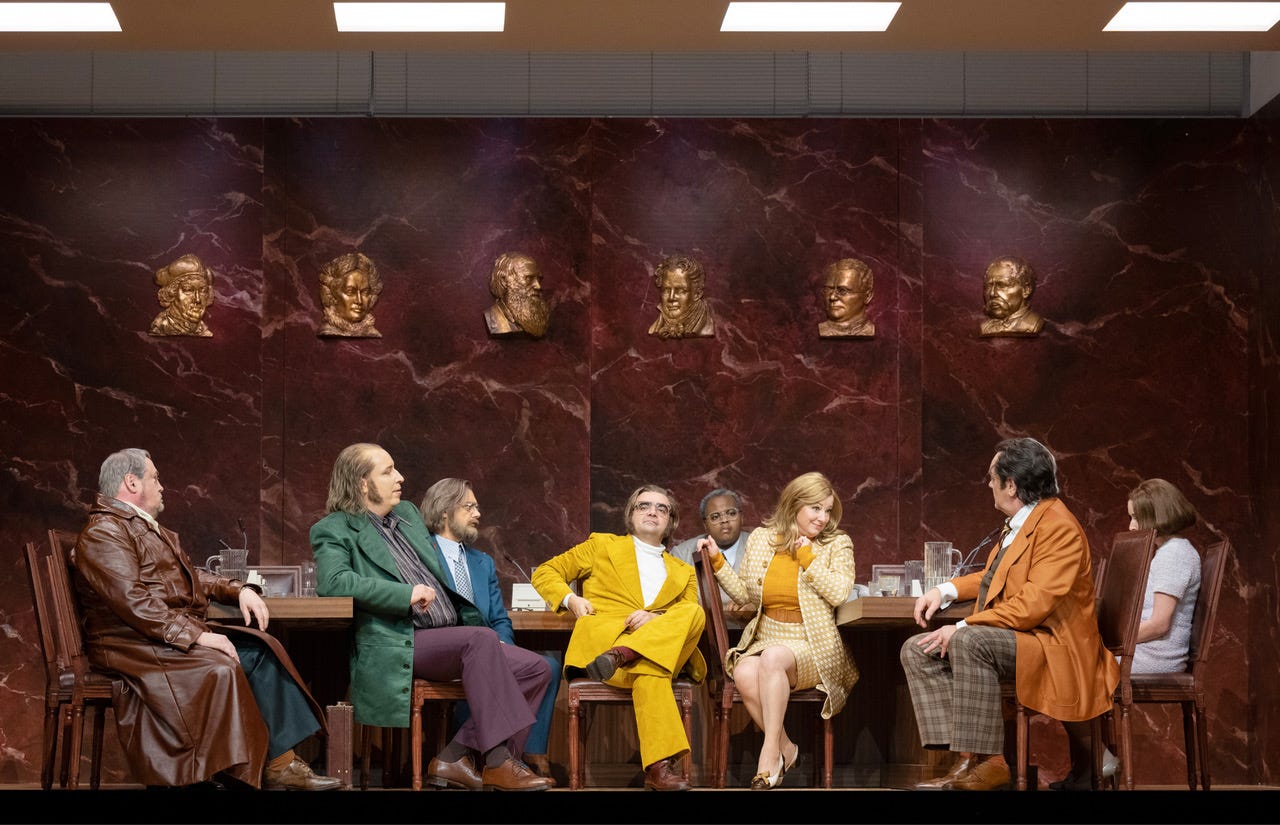The Gods and scientists: l to r, Peter Rose, Mika Kares, Lauri Vasar, Rolando Villazon, Siyabonga Maqungo, Claudia Mahnke, Michael Volle, Annett Fritsch, picture Monika Rittershaus
Berlin’s historic Staatsoper on the grand central avenue, Unter den Linden (under the lime trees), opened its third production of Wagner’s Der Ring des Nibelungen (The Nibelung’s Ring) since 1996 on October 2. During the same period of time, London’s Royal Opera has staged two different realisations of Wagner’s four-part epic, but reprised them far more rarely: Richard Jones’s 1994-96 wacky interpretation, in cartoonish designs by Nigel Lowery was lauded and derided in almost equal proportion – its conductor, Bernard Haitink, allegedly hated it - and enjoyed only one season of cyclic performances (1996). From 2004 to 2018, its successor by the hardly less controversial, but heavier-handed Keith Warner enjoyed three complete outings: 2008, 2011 and 2018. It was loved by a tiny coterie of “perfect Wagnerites” but only tolerated by almost everyone else.
The Staatsoper’s new production by the fashionable Russian director, Dmitri Tcherniakov, was to have been Daniel Barenboim’s third Ring in the house he has led since for the last 30 years, an astounding tenure, replete with triumphs, none more so than his first Ring here, directed by his longtime collaborator Harry Kupfer with whom he worked on all ten of the canonic “Bayreuth” Wagner operas – from The Flying Dutchman to Parsifal – over a period of more than 20 years. I attended that Ring in 1996 when it starred John Tomlinson, Deborah Polaski and Siegfried Jerusalem in the principals roles, a probably unbeatable cast back then.
Alas, Barenboim’s recent health problems forced him to abandon his conducting commitment to Tcherniakov’s staging. The Russian is a more recent enthusiasm of the Staatoper’s music director, having directed both Parsifal and Tristan und Isolde here previously, but their joint Ring was not to be and Barenboim ceded his podium to Christian Thielemann, music director of the Dresden Staatskapelle, with its exquisite Semperoper attached. Thielmann is perhaps the pretender to Barenboim’s crown as the world’s greatest Wagner conductor – both have had long and distinguished associations with the annual Wagner Festival at Bayreuth – but the two men are antipoles as human beings, the Israeli, world renowned for his championing of Palestinians’ rights in his adoptive country, the German a more politically divisive figure who has drawn criticism for his refusal to condemn far-right German parties such as the AfD and his devotion to such unhip composers as Hans Pfitzner, a discredited favourite of the Nazis.
Keep reading with a 7-day free trial
Subscribe to Operalogue to keep reading this post and get 7 days of free access to the full post archives.




